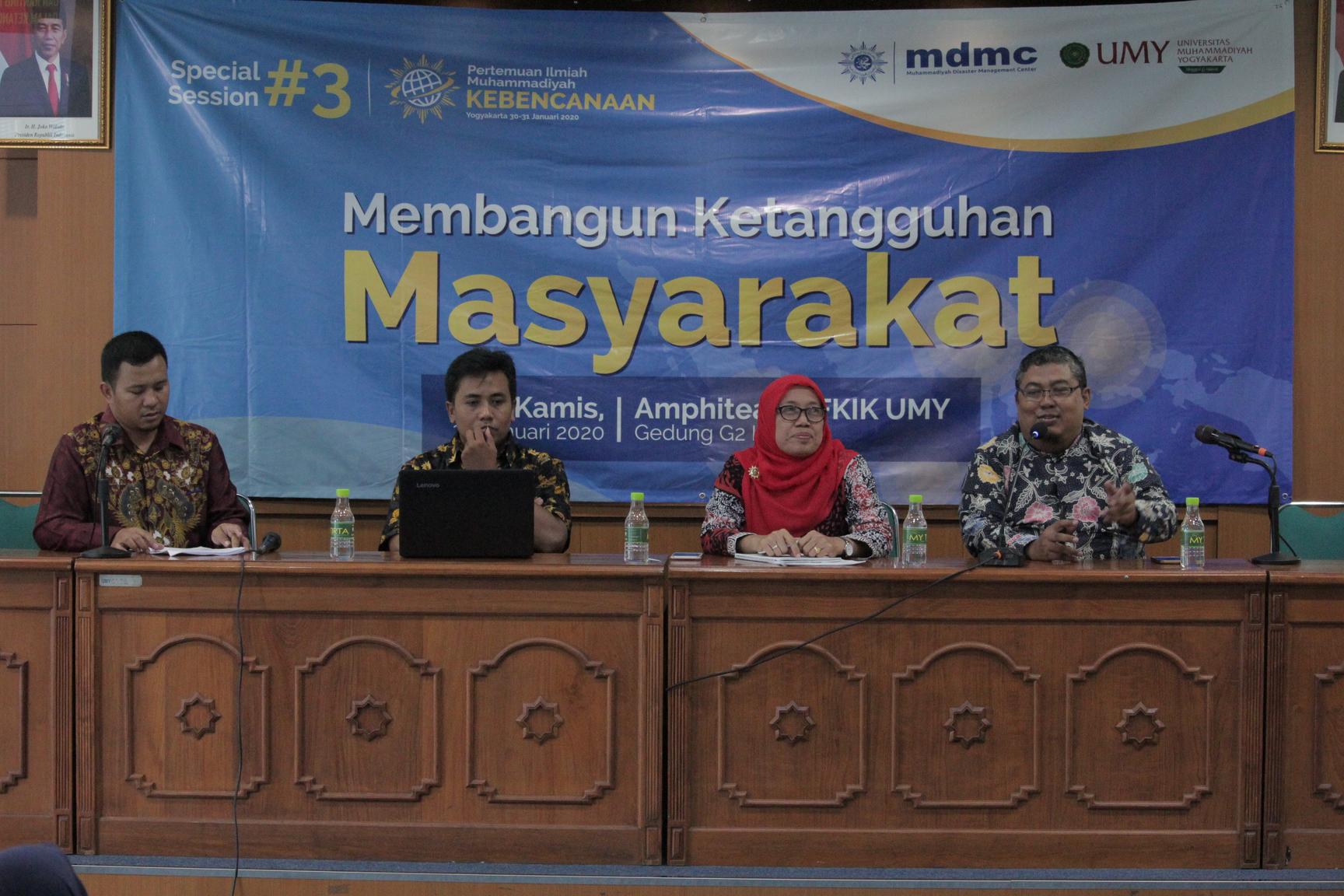 The ability to respond to disasters is often overlooked by individuals because they always depend on the government and disaster relief groups. After seeing the many disasters that occur in Indonesia from year to year, disaster response capability should be improved not only from the professional level of Basarnas, BNPB, medical staff but also on the people, especially people who live in disaster prone areas.
The ability to respond to disasters is often overlooked by individuals because they always depend on the government and disaster relief groups. After seeing the many disasters that occur in Indonesia from year to year, disaster response capability should be improved not only from the professional level of Basarnas, BNPB, medical staff but also on the people, especially people who live in disaster prone areas.
On Thursday (30/01) the Muhammadiyah Disaster Management Agency or better known as Muhammadiyah Disaster Management Center (MDMC) held the Muhammadiyah Disaster Scientific Meeting at Universitas Muhamamdiyah Yogyakarta. This event was divided into several programs including a discussion session on building disaster-resilient communities. Deputy Minister for Disaster the National Agency of Prevention and Preparedness for Disaster Management Lilik Kurniawan stated that disaster response capability can start from the family, an initiative hhe calls KATANA (Keluarga Tanggap Bencana/Disaster Response Family).
“KATANA is a state where if a family decides to occupy disaster-prone areas, the family must understand the terrain and conditions they occupy (knowledge). From there, they became aware of the potential that anything can happen (consciousness), then the family will become a cultured and disaster-responsive family,” he explained.
Lilik added that in the disaster response circle, MDMC is in a position to support the surrounding community to be more resilient in facing disasters, considering that one of their 7 objects of disaster resilience was “settlement”.
Meanwhile, Dr. Tri Nur Hastuti explained about disaster-resilient communities from the perspective of women. As an active lecturer in Communication Studies at UMY and the secretary of Aisyiyah Central Board, she emphasized the problems of women and disasters. According to her, women are 14 times more vulnerable to disaster in terms of loss, psychological and traumatic impacts. This is because when there is a disaster, on average, women do not immediately save themselves but save their children first and then ensure that things are fine. In addition, limited knowledge in self-rescue and the absence of women in disaster mitigation training is also a factor of women’s problems with disasters.
“It would be better if women were involved in disaster response training, not just men. If women have children who cannot be left behind while undergoing training, we can only provide playground facilities or children’s play areas. While they follow the training, our children can play and are still under our supervision,” she concluded. (id)





